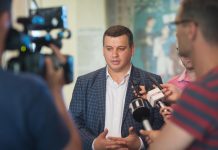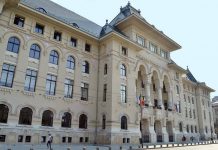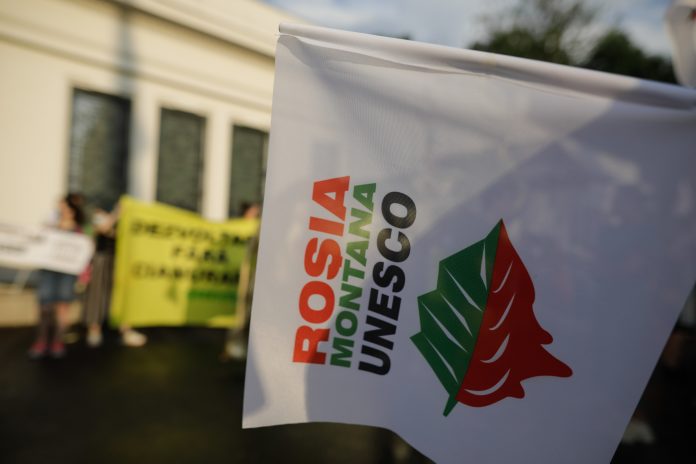For weeks, the Romanian government was preparing the public for a resounding defeat against Canadian mining company Gabriel Resources and a fine of billions over a failed gold mining project the country could ill afford.
However, late Friday evening, the government was caught off-guard when Romania unexpectedly won the case in Washington at the International Center for Settlement of Investment Dispute, a World Bank arbitration panel.
The word in Bucharest is ‘unexpectedly’ (neasteptat’) though it might not have been a surprise at all—simply the government didn’t know what its chances were and how good its legal defense team was. There are even claims government ministers were manipulating the Canadian stock exchange as Gabriel Resources’ shares soared before crashing as Bucharest predicted its own defeat.
The ruling was hailed as “a just outcome” while President Klaus Iohannis, who’s kept his hands clean in a very dirty case, called it „a moment of truth” in protecting Romania’s heritage.
What a change in fortunes. For more than a month, Premier Marcel Ciolacu’s government had forecast a negative ruling and a fine running to billions of euros. The prime minister had floated the idea of a referendum on the gold mine project. Minister for European Funds Adrian Câciu said that the 2,000 year-old mine be removed from Unesco protection. „Has it brought us any benefits?” he told Euronews.
In 2021, thanks to an initiative by the Save Romania Party (USR) Unesco added the ancient Roman gold mining area of Rosia Montana to its list of protected World Heritage Sites.
Nicolae Ratiu, a philanthropist and businessman and leading opponent of the gold mine project in the last two decades praised the court decision.
He said opponents “will be sighing with relief at the positive result of this arbitration. The very possibility that today’s government were seriously considering doing new deals with Gabriel Resources, including removing (it) from the Unesco list of protected world heritage buildings in order to permit the area’s exploitation, was an absolute nightmare,” he told Universul.net.
He said Alburnus Maior, Pro Patrimonio and Romania Curata were the most active NGOs in opposing the Rosia Montana Consolidated Goldfields project together with… all the hundreds of thousands, even millions of Romanians who protested all around the world.”
“Everything that had been fought for during some 20 years to protect our nation’s heritage and environment thrown away to get those involved at the time off the hook of their responsibility. Thank God, our lucky stars and ultimately the international arbitrators application of the rule of law for finally reaching this just outcome,” he said.
Mr. Iohannis welcomed the ruling. „I … congratulate the teams of specialists professionally involved in supporting our cause… After many years of political and legal contestation and debates, we have arrived at the moment of truth: Romania wins the case for Roşia Montană, without penalties or compensation, fighting and succeeding to protect the national heritage,” the president wrote on Facebook.
The company had had sought up to US$6.7 billion damages from Romania in its claim filed at the World Bank’s International Center for Settlement of Investment Disputes in 2015 for losses related to the stalled project.
In 2014, following years of nationwide protests, the Romanian government, which owned 20% of the project, officially withdrew its support, leading to the lawsuit.
„The Romanian government salutes this decision and thanks everyone involved in defending the interests of the Romanian state,” Ciolacu said in a short statement on Friday as some called for his resignation. Gabriel Resources has 20 days to appeal the ruling.
Gabriel Resources gained concession rights to the Rosia Montana area in 1999, but it turned into one of the most contentious public issues since the overthrow of communism.
The company fought a decades-long and costly battle with civil rights and environmental groups who argued the project would destroy Roman mine galleries and villages, and could lead to an ecological disaster.
The project envisioned using cyanide and carving open four quarries which would have destroyed four mountain tops and wiped out three outlying villages. The company said the project would bring much-needed investment and create jobs in a economically backward area.
It wasn’t just the potential physical destruction though that made it a poisonous case.
Mr. Ratiu called it a David and Goliath story of a company „founded by two shady and corrupt characters who over 20 plus years bought the support of dozens of Romanian politicians, paid off every political party and poured millions annually into the media.”
But public opinion grew against the project until it grew into „a national awakening, a significant cleansing of corruption, and, some would say, a genuine people-led revolution.”
Rosia Montana’s remaining reserves were estimated at 314 tons of gold and 1,500 tons of silver.

















